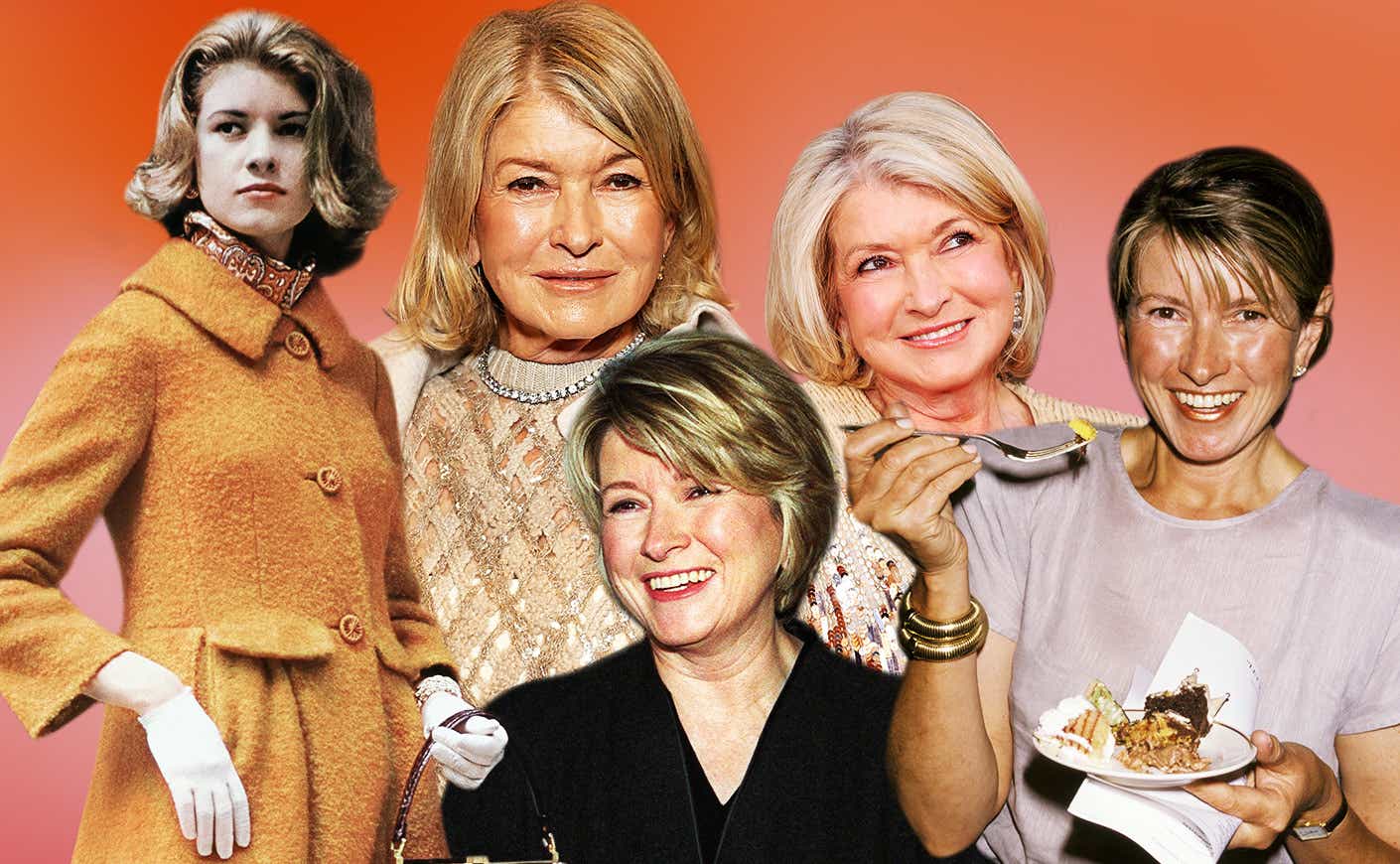"I'd like to focus on my salad," said Martha Stewart, wielding a knife and aggressively chopping an onion as if her life depended on it. It was a 2002 episode of The Early Show, where the homemaker extraordinaire was in studio for her weekly cooking segment. But host Jane Clayson wanted to focus on something else: the criminal investigation into Stewart's sale of stock in a company whose medication was subsequently rejected by the FDA — a trade that saved Stewart about $45,000 in losses but would eventually land her in prison for five months.
That Early Show clip, in which Stewart repeatedly says she can't discuss the case before finally being allowed to dive into her instructions for summertime dishes that travel easily, is a perfect encapsulation of her approach to not only her legal woes, but essentially every obstacle in her life. She weathers the tough questions without breaking a sweat (or bursting the pristine bubble she's presenting to viewers), eagerly awaiting the moment she can resume the business of domestic bliss.
That footage is just one example you'll find in Martha, the new Netflix documentary in which she tells her gripping story in her own words. Directed by R.J. Cutler, who's known for films like The September Issue, Billie Eilish: The World's a Little Blurry, and this year's Elton John: Never Too Late, the movie chronicles Stewart's entire life, from her unprecedented professional wins (including becoming America's first female self-made billionaire) to her very public downfall and the incredible comeback that followed.
For anyone who's forgotten: In 2004, Stewart was convicted of obstruction of justice and lying to investigators after she sold stock in the pharmaceutical company ImClone. Stewart's stockbroker, Peter Bacanovic, had reportedly been informed that ImClone CEO Sam Waksal intended to sell his own shares because he knew about the FDA's impending rejection, which would bring down the company's value. Bacanovic's assistant passed the message to Stewart, who sold her shares as well, kicking off the investigation into alleged insider trading.
Ultimately, Stewart was convicted not for making an illegal trade, but rather for lying to the FBI about the communications leading up to her sale. She makes it clear in the Netflix documentary that she still perceives the trial as unfair to this day, and Cutler describes it to Katie Couric Media as a "selective prosecution." Much of the case was spent discussing Stewart's abrasive personality and rude conduct with colleagues — behavior that, while unsavory, is by no means illegal. One interviewee in the film calls the entire process a "bitch hunt."
Martha spends plenty of time (“way too much time," according to Stewart) unpacking the trial, its aftermath, and her stint in prison, but there's plenty more to sink your teeth into. The film contains some shocking revelations, including that Stewart's father slapped her when he heard that her fiancé Andrew Stewart was Jewish, and that she had an affair with "a very attractive Irish man" during that marriage. (And since the premiere of the doc, Stewart's ex and his current wife have spoken out about that "painful and abusive" union with Martha.)
You'll also learn about her days as the only woman working at a finance firm on Wall Street, the catering business where she created beautiful meals that she compared to the paintings of the Dutch masters, and the explosive success of her magazine, Martha Stewart Living, and her company, Martha Stewart Living Omnimedia, which went public in 1999, earning its namesake $1.2 billion in a single day.
Needless to say, the agony and ecstasy of being Martha Stewart is on full display in this film, and there's lots to discuss. We called up Cutler to chat about directing the documentary, getting access to Stewart's revealing personal correspondence, and the wonders one witnesses upon entering the private world of America's most famous lifestyle guru.
Katie Couric Media: As someone who's had a very difficult relationship with the media, was Martha hesitant about opening up in a documentary like this?
R.J. Cutler: Well, she came to me. The way I met Martha was that I was scheduled to have dinner one night with my wife, Jane Cha Cutler, and Alina Cho, who are both producers on the film. Alina called that afternoon and said, "Martha Stewart would like to join us for dinner." Neither Jane nor I had ever met Martha, but who's going to turn down a dinner crasher like that? I spent that evening talking to Martha about her life and her background, and I was struck by what a remarkable story she has when you see it unfold in all its glory.
I told her that night that I felt there was a story to be told about American womanhood in the latter half of the 20th century and the first part of the 21st century. After a couple of other meetings, we decided to make a film together. She agreed that I would have final cut, which was also something we talked about that first night, because I always try to get it on the table as soon as possible.
That doesn't mean this wasn't difficult for Martha or that it didn't require enormous courage to tell her story and to trust me. You see in the film that it's not easy for her to revisit some of these things, but even when it required the most courage, she pointed us to her letters, her diaries, the footage that was filmed in the weeks between her conviction and her sentencing.
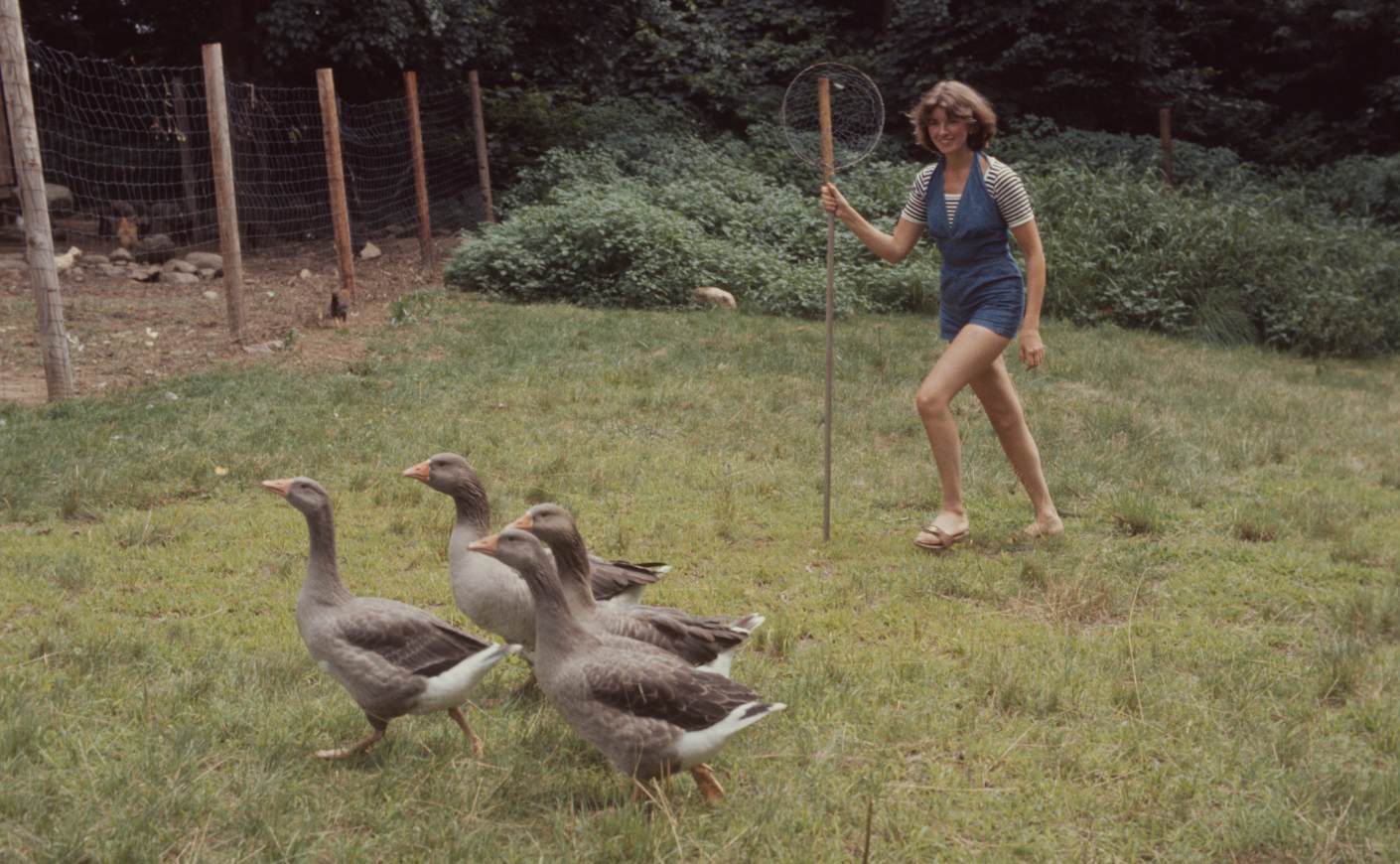
Those letters and journal entires are so personal, and it's fascinating to hear them and see them in her handwriting. How much of that material did she give you, and what were you allowed to use?
We were given access to her archive. She said, "Let me see the boxes that you're hauling out of here." She looked through them, and then we took them. Martha had no editorial control of the film. She put it in my hands. She hasn't been shy about saying that if she were making the film, it would be a different film. But that's not uncommon. I have nothing but great respect for that.
One of the themes in the film is Martha's perfectionism and her desire to control everything around her. What was it like for you as a filmmaker to be the person shooting and lighting someone who's so concerned about how they're presented?
Martha's not my first perfectionist subject. I've had the great fortune of working with other people who are extraordinary at their work and have a lot of opinions, but who trusted me to tell their story. I've been honored in that way by Anna Wintour, Billie Eilish, and Martha Stewart. We lit Martha beautifully, as you saw, and there you go...I'm really glad Martha trusted us to do it. We've made a film that honors her and recognizes who she truly is in the history of our culture and society. It has so much to say, not only about her extraordinary story, but about being a woman in America over the eight decades that she's been around.
We also look at the price paid — not only by Martha, for what the film clearly considers to be a selective prosecution, but the price that we all paid as a result of that selective prosecution. Wouldn't it be nice if Martha Stewart Living Omnimedia were still a thriving company? In this media environment, wouldn't it be nice if one of the titans were a woman? And if that woman had such extraordinary accomplishments on her record? She democratized taste and beauty and made it accessible for people who had previously not been able to afford beautiful things in the way they could after Martha made her deal with Kmart. She was one of the first visionaries to understand synergy. As we see in the movie, she would see the future, and she would sally forth, and the men would show up to tell her it couldn't be done, time and time and time again. Who knows what else Martha Stewart would see in our future that others wouldn't?
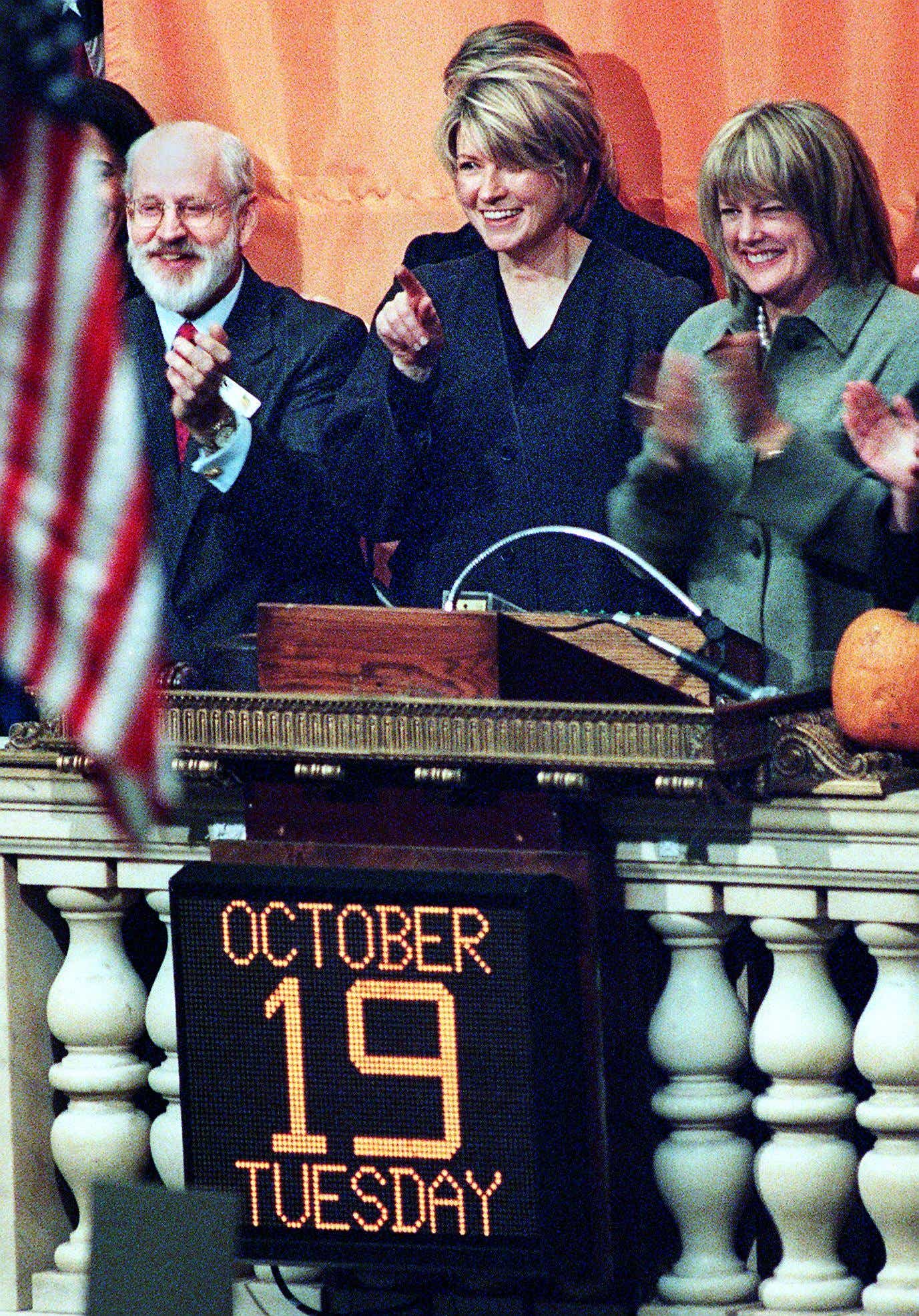
The film goes deep on the rise and fall of Martha Stewart Living Omnimedia — she made a billion dollars when the company went public, then she lost a billion after her conviction. Since then, she's reinvented herself and is enjoying great success again. What's your read on Martha's relationship to money today?
I think success is very important to her, and money is certainly a theme explored throughout the movie. When you ask that question, I think about the answer she gives in the film when I say to her, "What was it like to be the first self-made female billionaire in American history?" She says, "It meant I was taken seriously." I think that is of the greatest import to her. There's a reason why we tell the whole story. We talk about her childhood, her relationship with her family, and the fact that she helped put food on her parents' table when her father couldn't keep a job. It all ties together.
But the other thing I want to say in response to that question is that, in the film, you see a reporter asking her how much she lost [after the conviction]. Martha says, "I think a billion dollars." The reporter can't believe it, and Martha says, "Enough. Let's move on. Let's discuss the future." That's Martha. Martha is always powering forward, and look at what she's been able to do as a result.
We see that as she talks about her divorce from Andrew Stewart. She says things that punch you in the gut, like that she felt her husband was "throwing her away." But in the same breath, she says she doesn't "revel in self-pity."
Yes, and at the same time, there's extraordinary vulnerability. The pain still feels very raw. Martha, as the main character of this narrative, provides us with the incredibly complex human that she is — and, in the literary use of the phrase, she's an unreliable narrator. She's very subjective in her storytelling. You're seeing all of her complexity.
I'm interested in what kind of narrator Martha is — I thought about that when she discusses having an affair while she was with Andrew. She's quick to say that she doesn't think it contributed to the end of her marriage. It seems like she's already decided for herself how to discuss it.
I don't know that it's true that she'd decided how to discuss it. I'd never heard her talk about it. But I found her extremely revealing in that moment because of the way she deals with it. I knew that [her ex-husband] Andrew knew about the affair because he'd written about it in a letter to her. And when I asked her, the way she spoke about it was so complex, and I show you the entire moment in the film because I think it says so much about who she is.
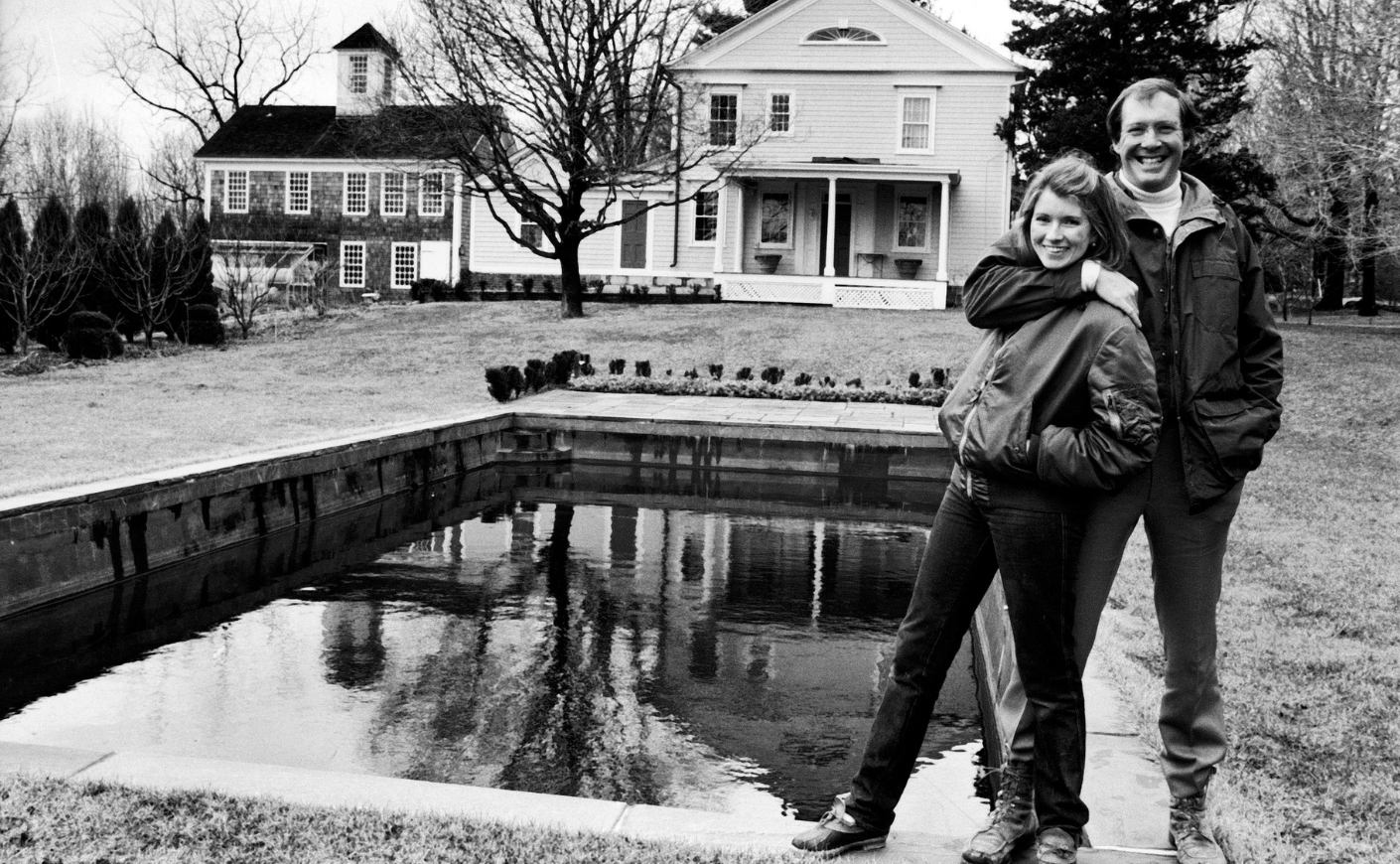
The film spends a lot of time on the press coverage she got in the '90s, including this "queen of mean" title and the way she was described as a pretty brutal boss. How much do you think that characterization holds water, and how much of it is a gendered reaction to a successful woman?
That's a really important question to ask. For instance, it's fairly evident that once the indictment comes down and Martha is put on trial for lying about a crime she didn't commit, the prosecution pursues a strategy of putting her on trial for being a bitch. Show me a businessman who lied to the FBI and then was put on trial for being an asshole. Show me a prosecution where anybody was put on trial for being mean to people, as opposed to being on trial really for the crime they committed.
Now, the jury clearly felt that Martha had lied. That was a crime, and they convicted her, and she did her time. But the strategy was to turn her into this villainous woman, and I don't think you see that a lot with men. I think it's a reflection of who we are and of the media. But we mean for these questions to be raised in the film, and Martha Stewart's story raises them.
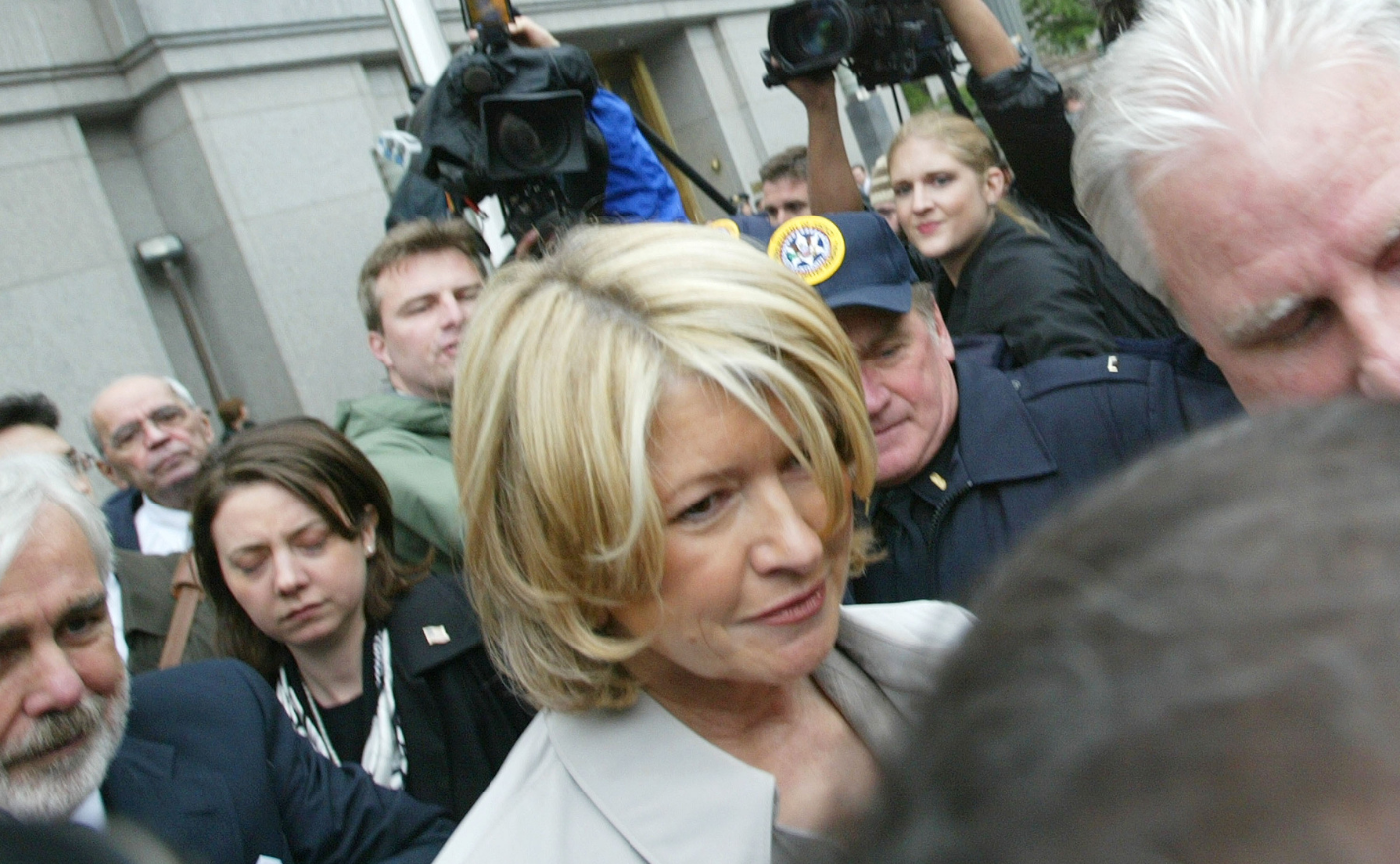
That characterization of Martha as a rude, difficult, challenging boss is juxtaposed with what the film tells us about what she was like in prison, where she shares gardening tips and gives women advice about starting businesses. You spoke to some of her fellow inmates for the film. Has she kept in touch with them?
I've heard her asked that question, and she says she has. I don't know personally. I do know that [the inmates] were all very forthcoming, and the emotion expressed was genuine. She made a real connection with them.
She was on a journey in prison. It was a tough ride for her. It was humbling, and there was that dark night of the soul. She experienced a moment of existential terror, and then she chose to turn it around because she's a survivor. Martha Stewart is a survivor, man — and it's why we love her.
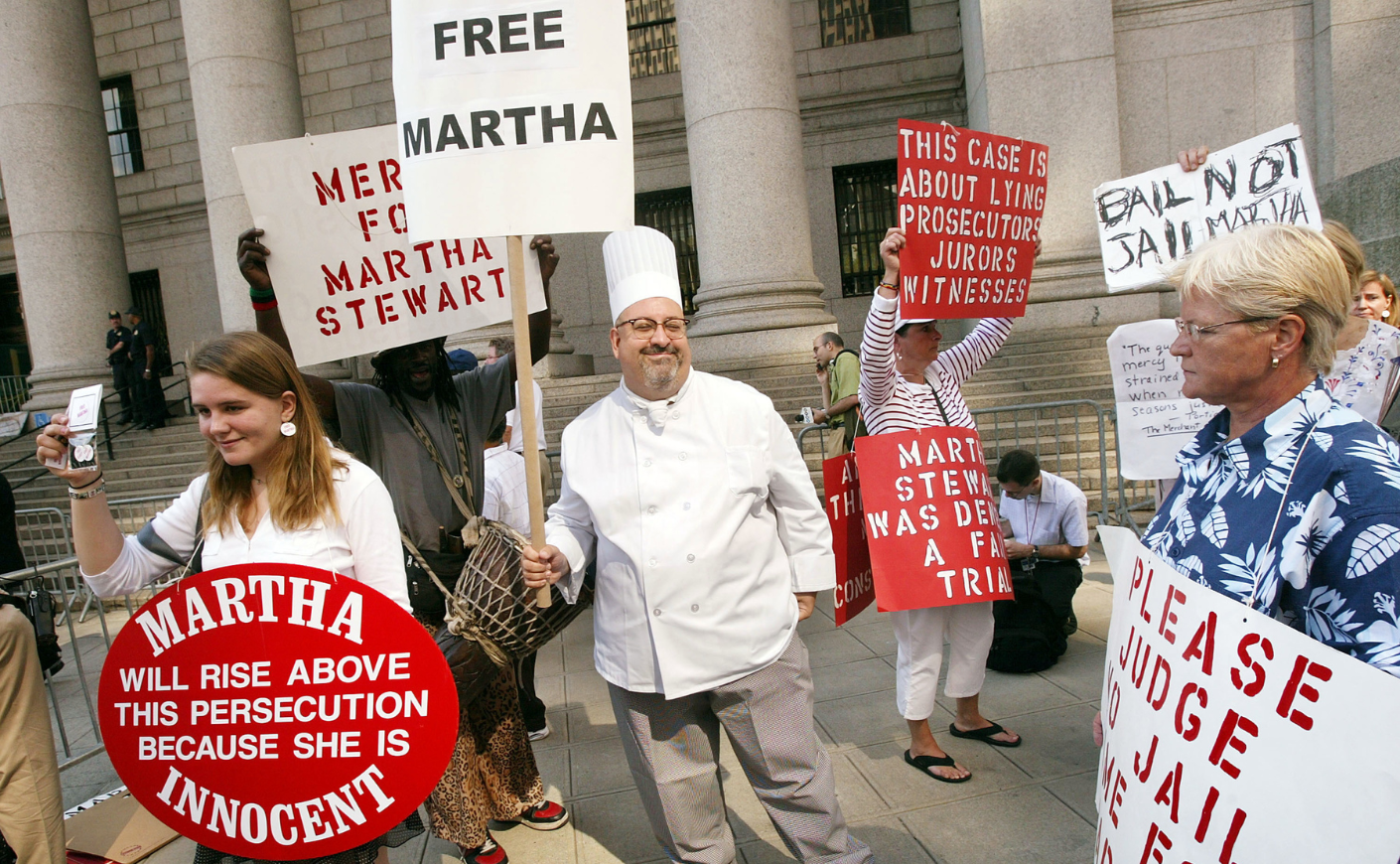
One of the most fun parts of the film is getting to visit Martha's home and see her beautiful property. What's the most Martha Stewart thing you saw during your time with her?
First of all, when she strolls the grounds, she's like Dr. Dolittle. She makes noises, and the animals appear out of nowhere. It's like a Disney cartoon: They all appear and they sing, "Good morning, Martha," and they go back to their proper places. So that's thing one. Thing two is that never has a crew been better fed on lunch break. And thing three is not on Martha's property, but I like to cook, and I was making a fish stew before having people over for dinner that night. I'd spent many hours over the stove, trying to perfect it, but something was missing, and I didn't know what it was. So I called Martha up. She said, "Get some corn, husk the corn, put it in the stew, and let it sit. When the guests eat the corn, the kernels will explode with the taste of the chowder, and it'll be fantastic." And, of course, she was right.
This interview has been edited and condensed for clarity.







